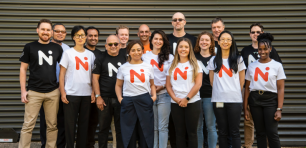
Source: Unsplash/LikeMeat.
There’s yet another Australian plant-based meat startup on the scene, with Harvest B securing $4.5 million in combined venture capital and grant funding.
SmartCompany had a chat with co-founder Kristi Riordan to find out a little more about the new kid on the alternative proteins block, and to find out how the infrastructure around plant-based meats is developing.
What is Harvest B?
Harvest B develops and produces animal-free ingredients, and distributes them to the brands cooking up plant-based meat products.
Founded last year by Kristi Riordan, Alfred Lo and Werner Fuggersberger, it’s intended to serve the emerging plant-based industry by creating a local supply chain of high-quality ingredients.
There’s “an incredible amount of innovation” required here, Riordan tells SmartCompany — as there is in the supply chain of an emerging tech sector.
“When Steve Jobs first introduced the Mac, he had to build every component for it, end to end,” she notes.
“Today, Apple … has more than 200 suppliers around the world,” she adds.
“Those components need to be absolutely best in class.”
Who are the investors?
This funding is made up of $3.5 million in venture capital funding, plus $1 million in grant funding from the Advanced Manufacturing Growth Centre Commercialisation Fund.
The funding round was led by Aura Ventures and W23, the venture capital arm of grocery giant Woolworth’s.
A group of angel investors also contributed, including food industry investor Fred Leforestier, as well as Rayn Ong and Alex de Aboitiz — both mentors at startup accelerator Startmate.
Why now?
This is a market that’s been ramping up over the past 10 years or so, Riordan says, with high-profile US food-tech companies like Impossible Foods and Beyond meat starting to change consumer sentiment.
In Australia, businesses like v2food, Fable, Nourish Ingredients and Vow have exploded onto the scene with their open alternative protein products.
Riordan estimates there are now more than 30 Australian plant-based food brands on the shelves of Woolies and Coles throughout the country. Yet, the majority are using ingredients sourced from elsewhere.
“We’ve had this rapid explosion that has taken place, which is really exciting because it means more variety, more choices, different types of proteins being used and different flavour profiles to really meet consumer demand.”
Why you?
The three-person Harvest B team includes expertise in tech, experience in building businesses, and deep expertise in the Aussie food sector.
Both Riordan and Lo hail from the venture-backed tech space, with Lo having worked primarily in hardware and manufacturing. He is also a Startmate mentor.
Iowa-born Riordan spent 20 years in New York City, where she was involved in launching and scaling multiple startups, before moving to Australia on the Global Talent Visa in 2019.
It was when she was looking for her next opportunity when she met Fuggersberger, who had been running an ingredients and flavour business for the past 30 years, typically working with meat.
“He’s always been at the cutting edge of innovative products,” Riordan explains.
He was starting to provide plant-based products to Aussie alternative meat manufactures, she says, but was importing a lot of what he was using.
“That’s what set us down this path.”
What’s next?
Over the past year or so, the Harvest B team has been working on R&D and developing its prototypes, Riordan says.
Now, the funding will allow the business to start producing its products on a commercial scale, while also expanding its R&D efforts.
The focus is on the Australian market for the time being, she says. But, ultimately, this is a business with global ambitions.
She thinks Australia could be as well-known for its plant-based products as it is for its traditional meat products.
“There’s no reason not to,” she says.
Riordan doesn’t necessarily see plant-based options replacing traditional meats. But as the population grows, “we need alternative sources of protein to supplement what we already have”.
It’s not about threatening any industry, it’s about finding a sustainable balance.
Whether it’s 20 or 30 years down the road or sooner, she says plant-based meats have to become mainstream.
“The path we’re on isn’t sustainable for the planet.”
Handpicked for you

The ‘inconvenient truth’: Why we need to plate up plant-based for the planet



COMMENTS
SmartCompany is committed to hosting lively discussions. Help us keep the conversation useful, interesting and welcoming. We aim to publish comments quickly in the interest of promoting robust conversation, but we’re a small team and we deploy filters to protect against legal risk. Occasionally your comment may be held up while it is being reviewed, but we’re working as fast as we can to keep the conversation rolling.
The SmartCompany comment section is members-only content. Please subscribe to leave a comment.
The SmartCompany comment section is members-only content. Please login to leave a comment.